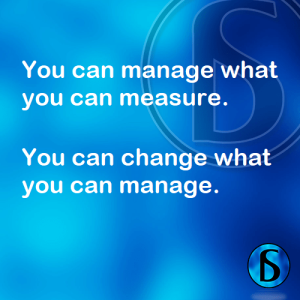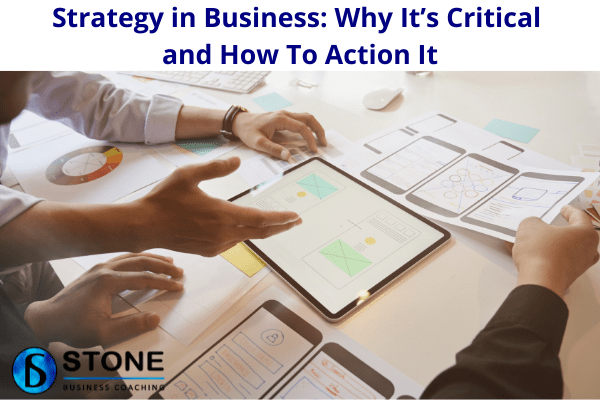You may first ask; what is business strategy? Essentially, it’s a very clear (and ideally documented) set of plans, goals and actions that outline how a business will succeed and do well. It will outline the decisions and actions a business intends to make in order to achieve its objectives and goals. It assists in having an informed decision-making process. Importantly, it gets the relevant stakeholders, owners, and managers thinking (and planning) for the future. That future may be direction, markets, growth or something else. Knowing your goals, direction and course of action and strategy means you (and your team) know how you will work towards a specific planned future. In sports, the coach will plan out what the team will do in order to win. That’s not a lot different from what I do as a business coach; I’m working with my client to determine our plan of attack to win in business.
Some examples of strategic planning include:
- When I intended to expand my prior business into Melbourne, I began building a database of my target strategic alliances up to 2 years prior to opening and began marketing them. The marketing wasn’t to sell, but rather to build brand awareness. This was a longer-term strategy; not something started a month beforehand. When we did open the doors in Melbourne, the people we approached said “Yes! I know you.” We had already developed like, know and trust.
- You plan to expand your business into a different but related area; you do an analysis to determine what you need. This may be human resources, a website landing page or perhaps training for your sales team to know and understand the new product or service. In other words, before you leap into the new area, you are fully prepared and ready to go.
- You plan to (or strongly expect you will) have substantial sales growth; but in order to do that, you determine you need more team, more office space, more computers, phones and cash. You begin making plans on sorting all those aspects out. Of course, if that planning or knowing the sales growth will occur, is that due to marketing or natural growth? If marketing, then that needs to also be well planned. Remember also there is always the possibility of a slump; so what is your strategic plan should that occur?
- Strategy can be protective. You see a trend starting in your industry. It might be the change in accounting software that you service; where a newer one is starting to really gain traction and the one you ‘always’ provided is losing foothold. You talk with the team and clients to gain their thoughts. You may then decide to start offering that ‘new’ software option, but first, your team need to be trained, you may need to gain certification and your marketing needs to be adjusted, as does your website and any digital brochures. You may also need to amend checklists and processes within the business. Moving or expanding into a new sector can be protective where you see a potential downgrade in your current market.
- Perhaps you see your industry may struggle generally in an impending economic downturn. The strategy might be to diversify, or perhaps to make your business better. You may do a gaps analysis or SWOT to determine areas you can improve. You might invest in team or self-development, education and learning. Your analysis may identify there is a product or service which would be valuable to clients or customers during an economic downturn and this is an area you research and potentially plan to deliver.
In all these examples, you see some common factors:
- Analysis and future thinking
- Research and investigation
- Planning, or rather ‘strategic planning’
- Communication with relevant parties
- Implementation
- Further communication with relevant parties
- Measurement and review – which I haven’t mentioned.
When you build a strategic plan, there are a few things to consider. First and foremost, does the plan align with the core values of the business or business owner/s? If the owners are risk-averse and there is an element of risk (albeit well-considered and analysed) then is it wise to proceed? If staff, clients, customers or stakeholders are strongly averse to the direction, again, do you proceed? Will it actually work? What are the strengths and weaknesses of the business and the business owners?
Another part of your investigation is considering what you will need to do in order to implement this? What resources will it take? How much money will you need? If the expansion requires a heap of money and the business simply doesn’t have it – and doesn’t have an appetite for debt, then is it wise to proceed as originally intended? Perhaps a variation of the plan would be necessary or thought around approaching the problem in a different way, such as partnering up with another business owner? If a plan at first isn’t right, it may not be always the case of simply scrapping it, but rather, looking at different directions, avenues or options.
When building a plan, I believe a few components are necessary:
- What is the goal?
- How will it be achieved? That is, what are the tactics and action steps?
- Who will be the maestro to make sure it happens?
- Who will assist the ‘maestro’ to make it happen?
- What budget is allocated to the plan?
- What is the timeline?
- What review or analysis needs to happen along the way and at completion?
- What is the plan for measuring success, review and improvement in the future?
With any business activity, I believe it’s important to measure success. Whether it’s starting some Facebook Ads or offering a new service, you need to know if it’s working. Along with measurement comes review and revamp. Rarely does anything work absolutely perfect the first time. There are always (hopefully only tiny) tweaks and micro-adjustments along the way. We should be learning and improving as we go in order to make the activity (and business ultimately) the best it can possibly be.
There is an expression that I love –

Improvement includes efficiency, effectiveness and productivity. Having a strategic plan allows for these aspects as well. Having a plan and everyone knowing what is going on, not only can assist with efficiency but also with control of what is happening so that you can be sure to manage improvement. Remember that the business which is efficient, effective, strategic and on target has the competitive edge. A strategic business that thinks ahead is likely viewing all aspects of the business, not only its direction but its marketing, finances, operations and customer service. It will be the business that is likely addressing risk management.
Simply put, having a strategic plan of attack means that you (and your team) know where you are going and how you are going to get there!
The benefits of having a business strategic plan are quite substantial. It means that you have a clear direction and can prepare for that direction. It will increase your adaptability and your responsiveness to change. You will likely see industry trends sooner than other businesses and can respond effectively, or even lead the industry. Strategy will drive decisions and ultimately will ensure your business’ sustainability and profitability.
If you’d like to know more about my business strategic planning sessions, click here or simply give me a call on 0411 622 666.






